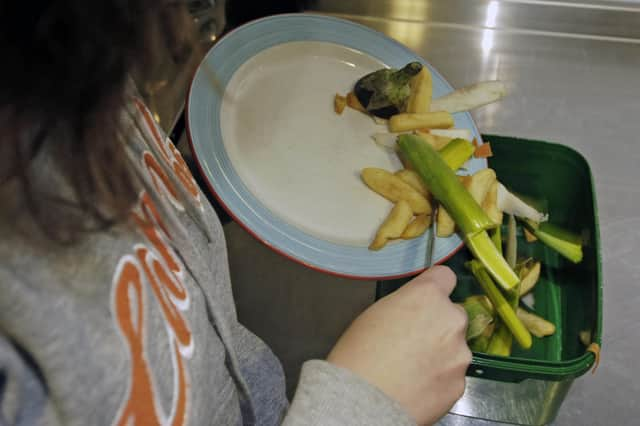Let's resolve to better manage our household waste in this new year - Chala McKenna


As we witnessed throughout the COP26 event, the planet is facing a climate change emergency. Addressing this requires political will from leading nations and decisive measures from big corporations but a huge impact could come from the collective efforts made by individuals.
Here in Scotland where we have the infrastructure in place, one simple commitment we can all make is to ensure we better manage the waste we produce within our households, starting with food waste.
Advertisement
Hide AdAdvertisement
Hide AdAccording to the UN Food and Agriculture Organisation, if our combined food waste was a country, it would be the third largest emitter of greenhouse gases. This sobering fact highlights the importance of better managing this form of waste. Recent waste composition analysis by Albion Environmental, of the UK’s leading consultants in the environmental sector, regularly demonstrates that as much as 30% of residual waste comprises food waste. If that was properly segregated, using the systems already provided by all Scottish councils, it could be used for fertilizer or energy production instead of being landfilled.


There is a great opportunity for us to raise the bar in managing food waste and reducing carbon emissions. Viewing our discarded food in isolation is known to encourage households to reduce the amount of food they waste saving them money and reducing the environmental impact.
There is also plenty of scope to raise our overall participation in household recycling. Official figures from 2020 reveal the actual kerbside recycling rate to be just 28.68% and, when contamination is considered, this brings the figure down to 23.83%. Albion Environmental also found that up to 70% of material in general waste bins could have been recycled, demonstrating the level of work required to get households to engage fully and use the recycling systems provided properly. They estimate that each local authority could save at least £1m if this material was recycled, money that could be spent on other local projects or infrastructure. The Scottish Government hopes we can raise this threshold and has launched a new £70m fund to improve infrastructure to help drive new innovation and improvements to recycling across the country.
With additional infrastructure in place, it will ultimately come down to us as individuals to perform the tasks needed to improve recycling rates – fully engaging with the process by understanding what can be recycled, segregating our waste using the systems already in place and washing out dirty items.
We should celebrate the fact that we have made tremendous progress over the last two decades but we must also accelerate the pace of change and fully engage every individual to further reduce and better manage their waste.
This starts with better engagement of children on the hidden nature of waste and huge benefits to the planet recycling can bring.
We must also address the current inconsistencies in waste collections in different local authorities. Putting in place a unified system where the same coloured bins are utilised and the same range of recyclable items are accepted would help simplify the process and encourage more people to recycle effectively.
Initiatives from the Scottish Government are certainly welcome, but more will need to be done if it is to deliver on its sustainability policies including its ban on biodegradable municipal waste – which includes waste from households – from going to landfill. This will not be achieved unless we see further investment to improve recycling rates.
Advertisement
Hide AdAdvertisement
Hide AdAs we look forward in 2022, we should not underestimate the power of the individual in reducing waste and achieving net zero carbon emissions. These actions multiplied by 7.9 billion people can ultimately make a significant impact in securing a sustainable future for the planet.
Chala McKenna is a Senior Solicitor and waste management specialist, Davidson Chalmers Stewart LLP